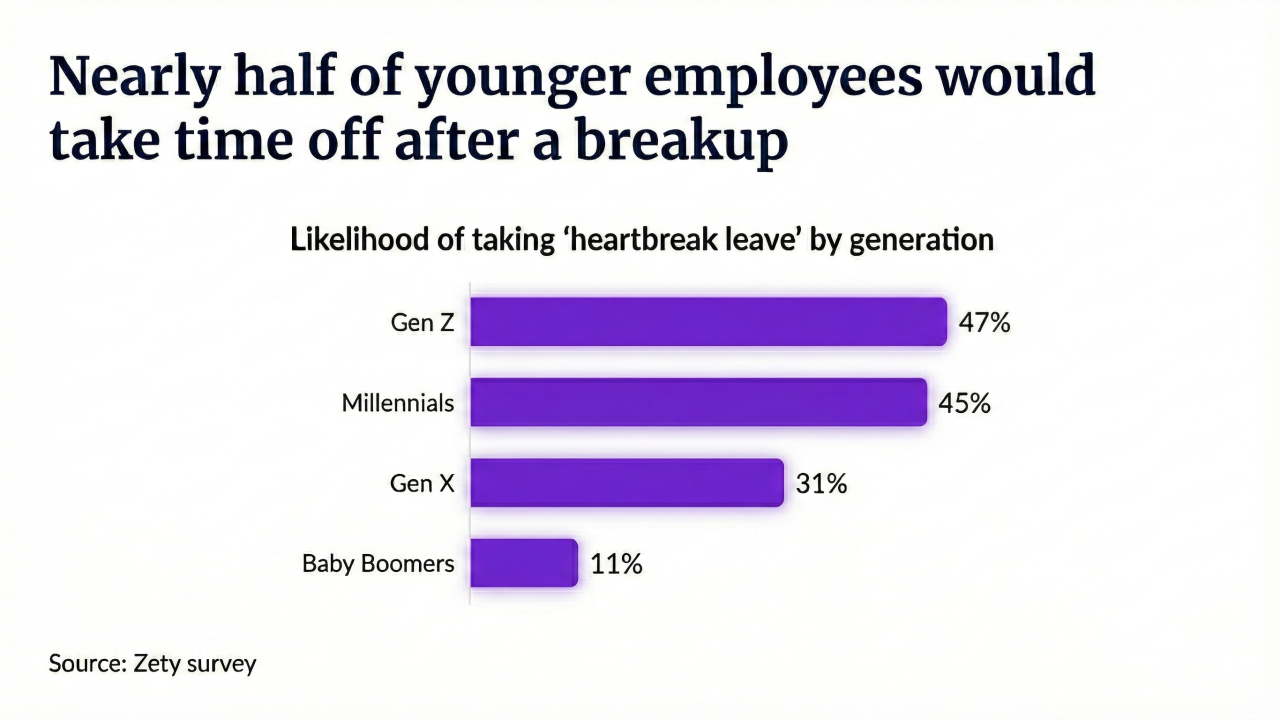Helping people
"I [want] to do something that provides value in the sense of a good opportunity for people who work at Jobot — that's why we made it an employee-owned business, give every other Friday off and create opportunities to give back," Golledge says. "We can do things that really invest in the employees, as well as the community we serve."
Jobot's platform uses AI technology combined with expert recruiters to streamline the job-match process and
"Across the board, everyone at Jobot — from someone who just started in tech support to the top biller, has equal value to the company," she says.
Read more:
Humble beginnings, high expectations
Golledge and her three siblings were raised in San Diego by their mother. Her father, a fighter pilot, died in the Vietnam War. The family faced financial hardship, and it was observing her mother's fortitude, kindness and love for learning that inspired Golledge to become financially independent while striving to make a difference along the way. In 2000, as a mom of two young daughters and little business experience, Golledge took matters into her own hands and started CyberCoders.
"There was literally no one willing to give a 29-year old woman, who'd never started a business before, venture funding," she recalls. "So I thought, I'll be scrappy and bootstrap it, and I would literally close placements, close deals, and use that money to hire the next person. About seven years in, I bought out my partner, and then in about another seven years, I exited CyberCoders."
When Golledge took on the investments that allowed her to buy out her partner, she also achieved her dream of retiring her mom, who, at 70, was still working as a teacher by day and jewelry salesperson in the evenings.
Following the sale of CyberCoders, Golledge went on to start professional connection platform CareerBliss in 2008, followed by Jobot in 2018. She has been selected as an EY Entrepreneur of the Year three times. Throughout her career, human connection has remained top of mind.
"I hope that [the people I work with] come away from our relationship better than they started, whether that's through their career, their knowledge or their financial situation," she says.
Read more:
Golledge explains how she strikes a balance between Jobot's business success and a great workplace culture and why leaders shouldn't shy away from having a strong presence.
How do you define culture, and what impact has that had on your team?
Culture is the workplace behavior that you allow. There are a lot of companies that, if someone brings in enough money, they allow them to be a jerk. But we're very clear, even in the interview process, if you're someone who enjoys being on the top of a totem pole and treating others poorly, it's a no. Maybe once a year, I have to hop on a call with someone and remind them of this policy, and they will say, 'Sorry, things got out of hand,' and they understand it.
We have rules of engagement for almost anything you can imagine. From the time they have their first interview, everyone knows what the expectation is for them and others: The expectation is you're going to allow people to be heard, that you're not going to shut down someone's ideas just because it sounds like more work, or it's hard, or you don't understand. You're going to feel respected, and you're going to feel like part of a community.
Good ideas can come from anywhere. This ability to come up with ideas, the ability to be heard, the ability to be respected — of course we still need to have a business, so we need a certain minimum done — but we also have an open mind.

How does valuing employees extend to their personal lives at Jobot?
We need to get certain things done, but at the same time, we want to respect you and your family. No matter what, family comes first. For example, on nights and weekends, we don't text or call each other unless it's an absolute emergency. The idea is that you should work very hard during your work hours, and then you should shut it off. Turn your phone on airplane mode, close your laptop and live your life — the work will wait for you.
Read more:
What is your advice to other leaders?
Stop apologizing and start listening. As leaders, whether it's C-suite or a local manager, there's a tendency to be too weak of a leader, where you don't stand on business and protect your employees. When I work with leaders, especially women, they almost apologize for existing. They'll start meetings with 'I'm sorry if we already went over this.' It's not necessary — you don't need to apologize for being a leader.
Then on the other side, you have the authoritarian leadership, where they feel like everything they do is right, they don't take any feedback and they're not listening. Leaders are imperfect. We all make mistakes. [Employees] are looking to see, does this person care about me? Do they care about my family? Do they care about my career goals? Have the strength to stand on business, stop toxic behavior in the workplace, and listen to your team.
Read more about building a strong company culture:
SHRM's CHRO shares strategies for reviving civility in the workplace Why are workplace benefits still overlooking burnout? A retirement send-off boosts company culture How to preserve human connection in a tech-driven workplace Olipop's new PTO benefit encourages employees to take a summer vacation
Read more from EBN's Manager Diaries series:
How this mom and executive strikes a successful work-life balance How managerial training transformed Sentinel Group's engagement and tenure How EY embraces career changes — without losing top talent This Capital Rx exec is lifting the veil on prescription medications Canary's founder explains the power of an emergency grant benefit






